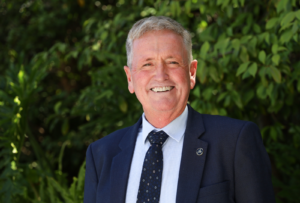With the inquiry into the financial administration of homelessness services in Western Australia concluding a week of hearings, the scale of homelessness and the lack of support for service providers in Western Australia has been made clear.
“Homelessness in our state has been increasing steadily for almost two years now, and what we are hearing is evidence of that and the impact that is having,” said Shadow Housing Minister Steve Martin MLC.
The lack of homelessness support services is being felt particularly hard in regional Western Australia.
Anglicare CEO Mark Glasson remarked that approximately 40% of Anglicare business operates in the regions, yet there is a concentration of funding in the metropolitan Perth area in terms of homelessness and homelessness support services.
“What we’ve seen recently in our regional services is the lack of any response to homelessness,” said Mr Glasson.
“Over the last 18 months, for the first time ever our housing support workers and our other housing service providers have had nothing to offer.
“The availability of affordable housing in Western Australia’s regions has completely tanked.
“So, what we see is people in the regions get a much more ad hoc response to their service needs. There are just not the resources,” said Mr Glasson.
Anglicare also reported a lack of homelessness support services in regional centres such as Manjimup and Katanning. This has forced people to travel out of their communities and into larger towns, such as Bunbury, to access services. This creates further problems as it removes people from their local community and support networks.
“What we have also learnt during these hearings is that there is a bottleneck in the system,” continued Mr Martin.
“We are consistently hearing that due to long public housing waitlists, people who have been placed in short-term crisis accommodation intended for 6-8 weeks are now staying for 6-12 months, particularly those facing family and domestic violence.
“This means that people who urgently require access crisis to accommodation today are very unlikely to be able to find a placement and are unfortunately likely to return to unsafe living situations in order to keep a roof over their head,” said Mr Martin.
The Salvation Army’s submission indicated its family and domestic violence service in Karratha had reported having to turn away individuals on 600 occasions in the past 12 months.
Concerns have also been raised by service providers around attracting social workers to Western Australia, particularly in regional and remote areas.
One service provider claimed it took 10 months to recruit a mobile outreach worker in remote Western Australia.
Providers have stated that the level of remuneration is a major barrier, as wages cannot compete with other states or occupations. The problem is further amplified due to a lack of suitable housing options for staff and a shortage of experienced workers.
“The inquiry into homelessness services is still ongoing, but it has shown just how much needs to be done to support people in accessing affordable housing options,” said Mr Martin.


